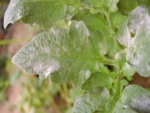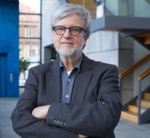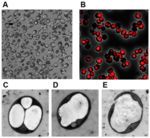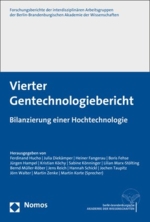-
-
-
-
CRISPR/Cas9 and genetic engineering laws - 27/11/2019

Plant geneticists from Tübingen have used genome deletion to breed a variety of tomato that is resistant to powdery mildew. The CRISPR/Cas9 technology that they used enabled them to achieve this in a relatively short period of time. They also demonstrated beyond any doubt that the new tomato variety contains no foreign DNA and is indistinguishable from naturally occurring deletion mutants.
https://www.biooekonomie-bw.de/en/articles/news/transgene-free-plant-breeding-using-genome-editing
-
Two-part interview part 2 | Prof. Dr. Ortwin Renn on the green genetic engineering debate - 26/08/2019

Many scientists are expecting revolutionary advances in research to come from new molecular biology tools such as the CRISPR/Cas gene scissors. These methods are very important for agriculture, especially plant breeding and nutrition. However, the debate on green genetic engineering 2.0 looks like it may once again be heading for ideological battles. We talked with Prof. Dr. Ortwin Renn and asked him about opportunities for better communication.
https://www.biooekonomie-bw.de/en/renn-green-genetic-engineering
-
Two-part interview part 1 | Prof. Dr. Regina Birner on the green genetic engineering debate - 12/08/2019

Green genetic engineering continues to divide opinion in Germany in the same way as CRISPR/Cas and other genome editing (GE) techniques. What are the consequences for the bioeconomy, which involves key areas of biotechnology? We talked with Prof. Dr. Regina Birner, agricultural economist and head of Hohenheim University’s Department of Social and Institutional Change in Agricultural Development at the Institute of Agricultural and Social…
https://www.biooekonomie-bw.de/agricultural-economist-birner-calls-for-other-forms-of-dialogue-besides-organized-interest-groups
-
-
Dossier - 20/03/2017

Petroleum is the raw material for basic chemicals. Growing demand and dwindling resources mean that the chemical industry is increasingly focusing on renewable resources. Lignin is a wood component that is proving to be a promising resource. It is currently almost exclusively used for generating energy, although it could also be used for other purposes. In Baden-Württemberg, a research consortium is specifically focused on exploring its…
https://www.biooekonomie-bw.de/en/articles/dossiers/lignin-a-natural-resource-with-huge-potential
-
Website address: https://www.biooekonomie-bw.de/en/search







